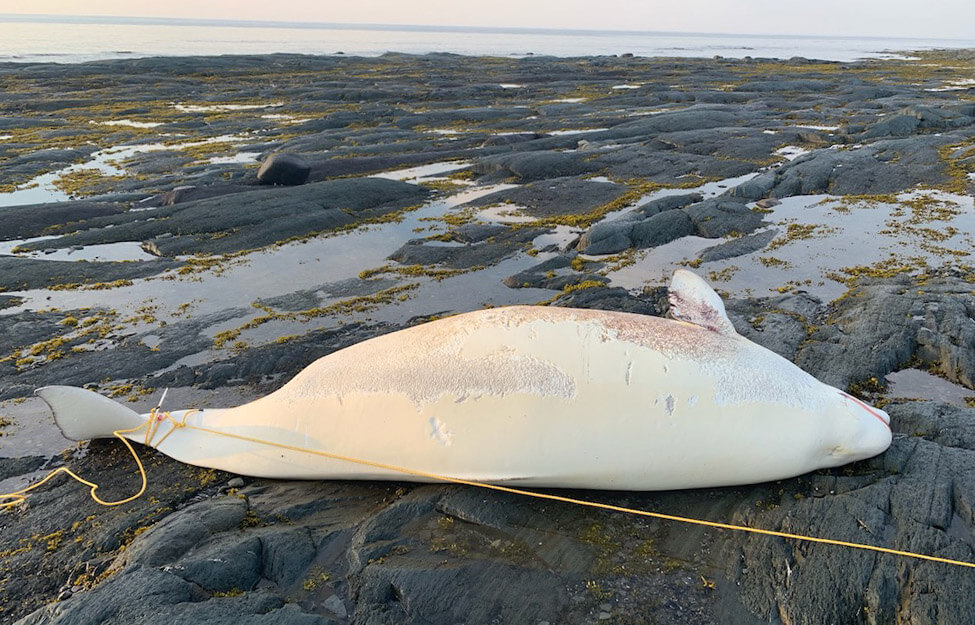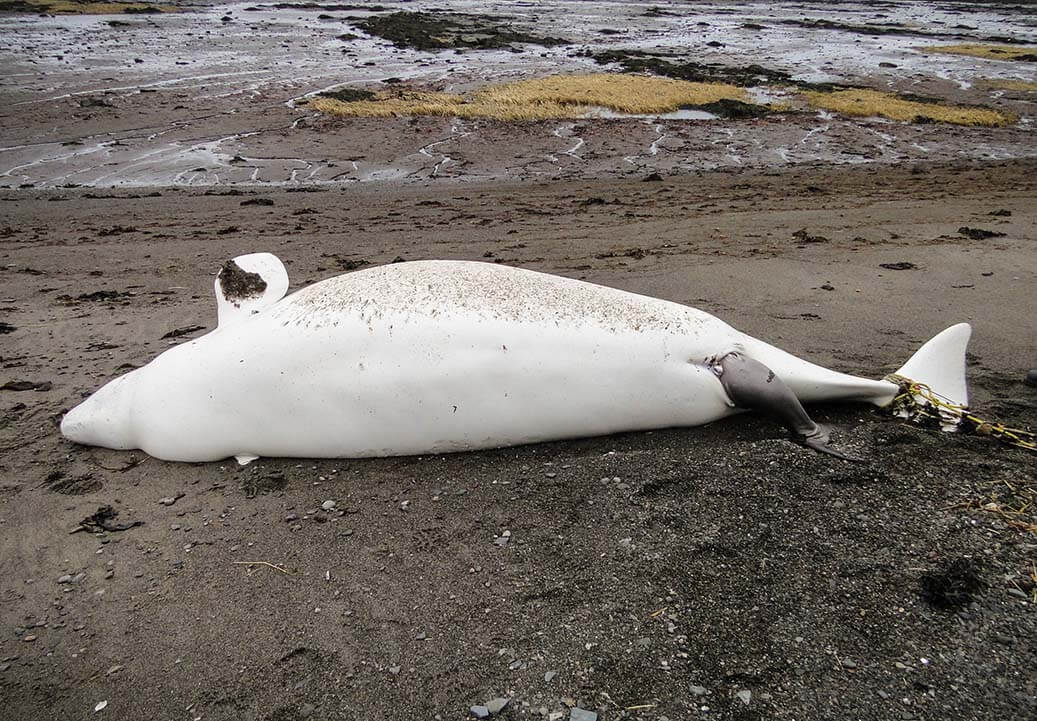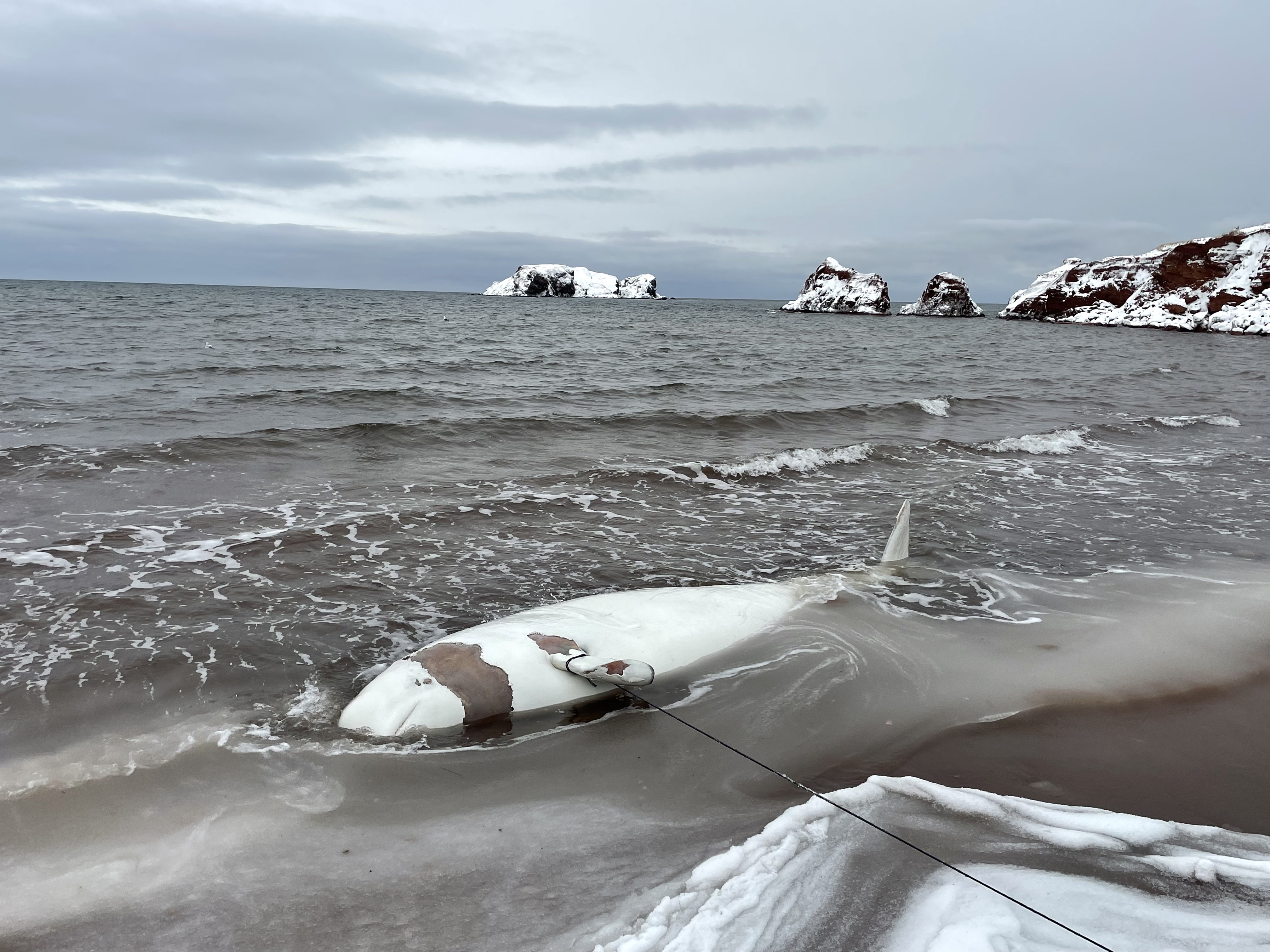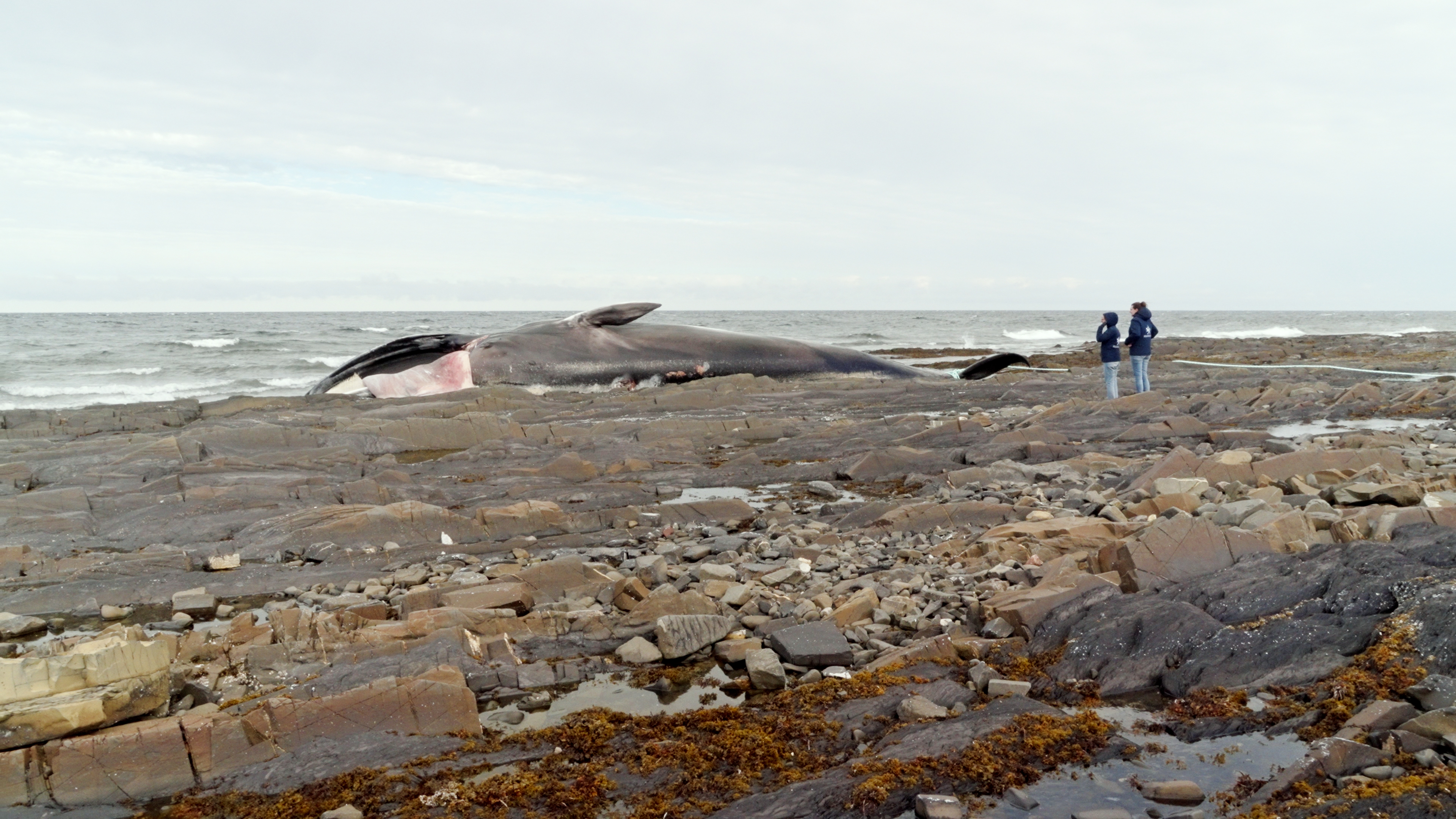“Mortality figures for 2019 are hardly reassuring,” comments Robert Michaud, scientific director for the Group for Research and Education on Marine Mammals. In 2019, 17 St. Lawrence beluga carcasses were found, including one in Nova Scotia, which is outside the species’ usual range. In 2018, 12 carcasses were discovered, vs. 22 in 2017 and 14 in 2016. With 17 carcasses, we find ourselves within the average range observed over the past few years.
Once again, it is not the number of carcasses that so much worries researchers, but rather the type of mortality and the high proportion of females among the recorded mortalities that are cause for concern. Stéphane Lair, professor at Université de Montréal’s Faculty of Veterinary Medicine, points out that “five of the six adult belugas examined at the Faculty of Veterinary Medicine for post-mortem examinations were females, which suggests that for adults, females show a higher mortality rate than males once again this year (assuming the sample is representative of total mortalities).”
La problématique des dystocies
Another noteworthy observation for 2019: three female carcasses, including that of DL0584, had a visible fetus at their genital slit. Necropsies revealed that these individuals had run aground due to calving complications called dystocia, or obstructed labour. “This unusually high occurrence of dystocia, which has been documented for over a decade in this population, is disturbing and undoubtedly poses a threat to its conservation. The potential causes of these cases of dystocia remain unclear. Research to better understand the potential correlation between dystocia and contamination by certain chemicals such as polybrominated flame retardants is currently being conducted by a team of researchers from different universities,” points out Stéphane Lair.
In fact, half of the females found in 2019 died of dystocia. There are also two newborns amongst the carcasses.
This grim series of mortalities does not bode well for the recovery of the St. Lawrence beluga population.
Volunteers with the Quebec Marine Mammal Emergency Response Network have been instrumental in carrying out the carcass monitoring program. Monitoring continues once again in 2020. If you observe a dead or vulnerable beluga, or any other marine mammal for that matter, please contact us at 1-877-722-5346.






